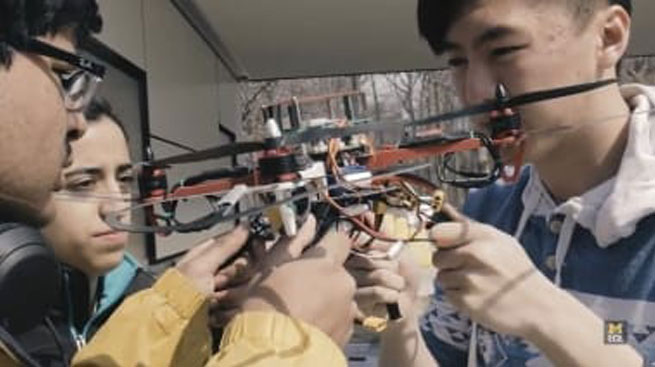Electrical Engineering and Computer Science at the University of Michigan (original) (raw)
The EECS Department is one of the leading departments of its kind in the nation. Our excellence and impact comes through in the work of the two departmental divisions: Computer Science and Engineering; and Electrical and Computer Engineering. In our unique structure, we have two Chairs, one for each division.
Computer Science and Engineering (CSE)
Home of one of the oldest and most respected programs in computation in the world, CSE is known for its engaging academics and high-impact interdisciplinary research. Our inclusive, supportive environment welcomes newcomers and underrepresented groups into this exciting discipline.
Electrical and Computer Engineering (ECE)
ECE faculty and students are powering innovation by revolutionizing technologies to improve healthcare, the environment, sustainability, security, energy, transportation and space. All ECE programs, undergraduate and graduate, are ranked in the top 10 in the nation.
EECS at Michigan
Established. Respected. Making a world of difference. EECS undergraduate and graduate degree programs are considered among the best in the country. Our research activities, which range from the nano- to the systems level, are supported by more than $75M in funding annually — a clear indication of the strength of our programs and our award-winning faculty. With this combination of great resources and talent, EECS at Michigan is transforming and improving a wide range of fields that touch all of our lives.

Undergraduate Programs

Graduate Programs

News and Events
Tools for “more humane coding”
Prof. Cyrus Omar and PhD student David Moon describe their work to design more intuitive, interactive, and efficient coding environments that can help novices and professionals alike focus on the bigger picture without getting bogged down in bug fixing.
Snail extinction mystery solved using miniature solar sensors
The World’s Smallest Computer, developed by Prof. David Blaauw, helped yield new insights into the survival of a native snail important to Tahitian culture and ecology and to biologists studying evolution, while proving the viability of similar studies of very small animals including insects.